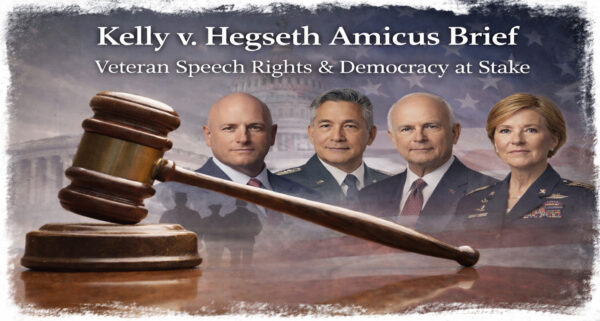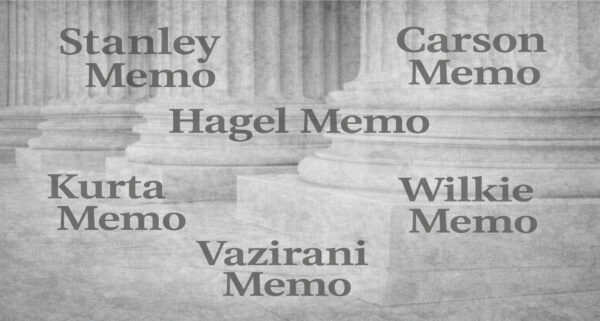
For many sailors, a physical fitness assessment is not just a test, it is a line in a permanent record. A line that follows them into evaluations, promotion boards, medical reviews, and sometimes into the final decision on whether they are allowed to finish their service or earn the retirement and benefits they have spent years working toward.
That is why the Navy’s recent decision to double the annual physical fitness assessment requirement and to mandate administrative separation after three failures within four years, deserves more than a headline glance. It deserves a careful, human review of how policy decisions ripple through real careers.
According to reporting by Navy Times, the Navy frames this policy as a readiness initiative. In theory, higher standards and clearer enforcement promote fairness. In practice, however, sailors know that what looks clean on paper often becomes complicated in the lived reality of injury, recovery, command climate, and medical evaluation boards.
For the sailor who twists a knee on deployment.
For the one navigating chronic pain while still meeting mission demands.
For the service member who followed every rule, every profile, every medical instruction and still finds themselves one failed test away from an administrative process that can end a career.
This policy change does not exist in a vacuum.
A failed fitness test is rarely just about fitness. It can trigger a counseling entry, influence a COER or FITREP, or quietly color how a service member is perceived by leadership. Once in the record, it often requires significant time and legal literacy to rebut, contextualize, or undo.
Under the new policy, the Navy has removed much of the discretion that once allowed commanding officers to weigh the totality of a sailor’s service. Where leaders previously had room to recognize exemplary performance despite a temporary setback, the system is now largely automatic. Three failures in four years, and separation proceedings must begin.
For sailors navigating the MEB/PEB process, this rigidity can be especially dangerous. Medical evaluations already place service members in a vulnerable administrative position, one where timelines, documentation, and narrative framing matter enormously. Add a fitness failure into that mix, and the consequences can multiply.
The result? Sailors spend months and sometimes years fighting to prove that a single metric does not define their service.
This is not the first time policy shifts have left scars on service records.
During COVID, fitness testing requirements were paused, altered, and then reinstated. While many service members were eventually allowed to return to service, the administrative damage was not always undone. Negative marks remained in records. Morale suffered. Trust eroded. And in many cases, sailors bore the burden of correcting problems created by rapidly changing policies they did not control.
The lesson from that period is clear: even when policies are later softened or reversed, the paper trail often remains.
The Navy has announced that prior PFA failures will be “reset” for certain purposes. But sailors should not mistake that for a complete erasure. Selection boards, special programs, and discretionary reviews may still see the past and once a negative evaluation exists, it can take significant effort to neutralize its impact.
What Is Really at Stake
Administrative separation is not a neutral outcome. It can affect:
- Eligibility to complete an agreed-upon term of service
- Retirement timelines and pension qualification
- VA disability claims and benefit offsets
- Post-service employment and security clearances
- The dignity of a career defined by years of honorable service
When fitness policy becomes a blunt instrument, it risks transforming short-term readiness goals into long-term injustice.
Service members who have played by the rules, complied with medical guidance, and maintained exemplary duty performance should not find their careers derailed by a system that lacks nuance — especially when medical realities and command culture play such a large role in outcomes.
A Call for Vigilance, Not Fear
This opinion is not an argument against fitness standards. It is a call for awareness and self-advocacy.
Sailors must understand that every fitness test, counseling entry, and evaluation comment contributes to a larger administrative story, one that may later be reviewed by medical boards, separation authorities, or retirement adjudicators. Protecting the right to serve a full term and to receive the benefits earned through that service often depends on how well that story is documented and defended.
Readiness matters.
But so does fairness.
And fairness demands that policy never lose sight of the people it governs.
About the Firm
The Law Offices of David P. Sheldon, PLLC, is a Washington, D.C. based military and federal employment law firm representing service members worldwide in courts-martial, administrative separations, medical boards (MEB/PEB), security clearance matters, and retirement and disability cases. The firm is nationally recognized for protecting the rights, careers, and benefits of those who serve.
Disclaimer
This article is provided for informational and educational purposes only and does not constitute legal advice. Reading this article does not create an attorney-client relationship. Service members facing adverse administrative action should seek individualized legal counsel.
References & Citations
- Navy Times, Navy doubles annual PT test requirement, updates failure guidelines (Dec. 30, 2025).
- MyNavy HR, NAVADMIN 264/25 Fact Sheet – Physical Fitness Assessment Policy Updates.









